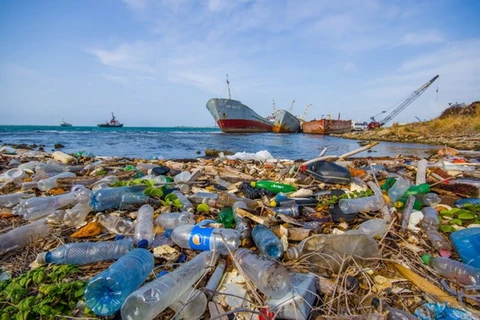 Households and individuals should sort their domestic waste into groups. (Photo: suckhoedoisong.vn)
Households and individuals should sort their domestic waste into groups. (Photo: suckhoedoisong.vn) The work has been piloted in Ho Chi Minh City over the past 10 years, and officially rolled out in southern economic hub since 2018.
Nguyen Hung Thinh, deputy head of the Vietnam Environment Administration under the Ministry of Natural Resources and Environment (MONRE), pointed out limitations in solid waste management regarding policies, infrastructure and implementation.
The high rate of solid domestic waste buried is partially due to the lack of attention to the waste sorting, he said, adding that poor infrastructure has also affected the efficiency of small-scale waste separation models in localities.
To deal with these shortcomings, the 2020 Law on Environmental Protection prescribes volume-based fees on collecting, transporting and treating domestic solid waste.
This is an amendment of the new law, requiring households and individuals to sort their domestic waste into three groups: recyclable, food, and others.
The amended law also stipulates that domestic solid waste which has been recycled is not subject to waste collection, transportation and treatment fees.
 Illustrative image (Photo: baotainguyenmoitruong.vn
Illustrative image (Photo: baotainguyenmoitruong.vn Provincial People's Committees have the right to determine the fees, while the unit that collects and transports solid waste each day has the right to refuse to collect and transport the waste of households and individuals that is not sorted, according to the new law.
Detailed plans for waste sorting at source and volume-based waste collection must be completed by local authorities no later than December 31, 2024.
The MONRE has learned from the models and experiences of other countries while studying amendments to laws./.
VNA






















